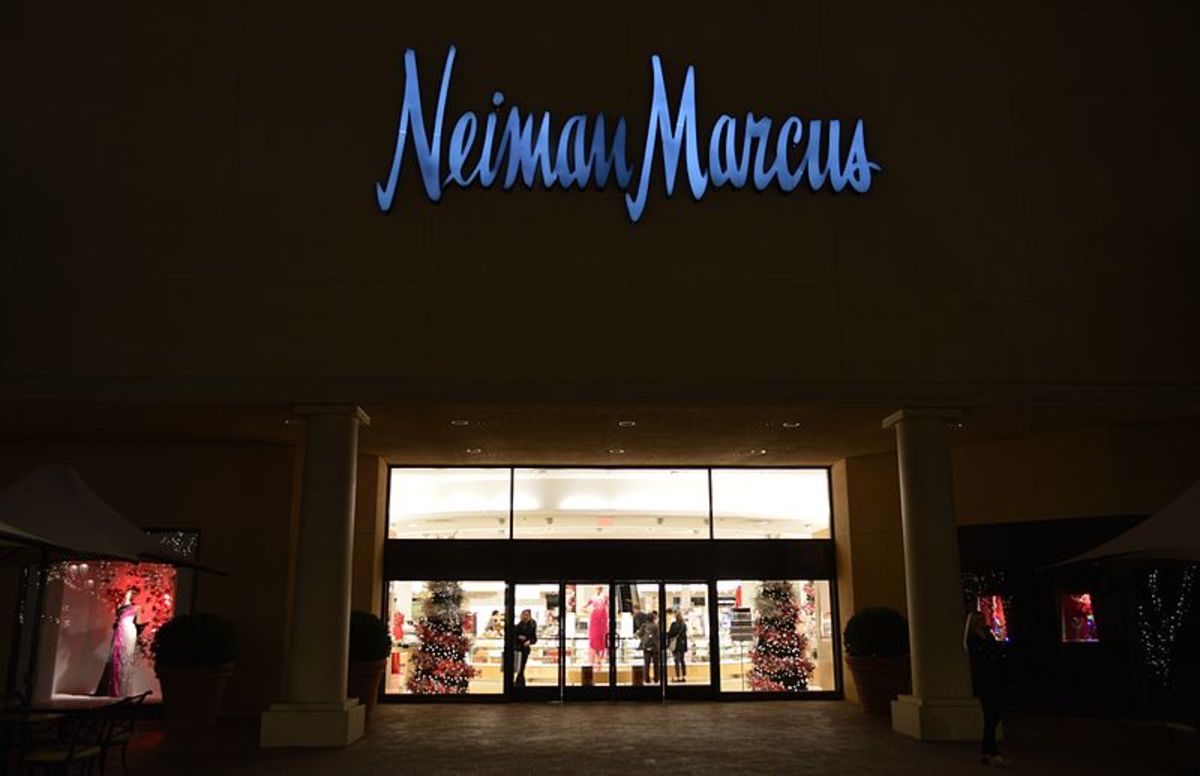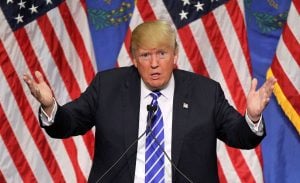Last Sunday, the New York Times published a detailed report about President Donald Trump’s taxes going back decades using tax information and documents obtained from anonymous and public sources. They found that he paid only $750 in federal income taxes in 2016 and in 2017 after he was inaugurated. More articles will be published in the coming weeks. As the presidential election draws closer, these articles were likely designed to influence the presidential election.
The tax records tells a story about Trump suffering huge losses from failing business activities in the 1990s, some of which resulted in bankruptcy. These losses were used to offset future income and avoid income taxes in future years, particularly when he was on the hit show The Apprentice. However, he took out loans to purchase more real estate projects, some of which were failing too. Trump stands to owe more than $400 million personally within the next four years. This large debt might incentivize him to win the 2020 election by any means necessary.
As a tax attorney, my clients, colleagues, and friends asked me many questions about the article. Most I cannot answer without seeing the actual documents. And even if I did have them, I don’t know enough about Trump’s financial structure to make even an educated guess. But I’ll try to answer a few questions below.
People have asked how Trump was able to pay so little in taxes if he supposedly made so much money. The reason was due to large business losses he incurred many years ago. Assuming all of those losses were legitimate (including a major loss which is under audit with the IRS where a $72 million refund is at stake), it appears that he properly carried them forward or backward to offset income. Also, the article notes that he also took advantage of obscure business tax credits to reduce his taxes. These tactics are available to everyone. However, only a few people can fully take advantage of them since not many people own investment real estate and fewer own multiple businesses where a loss from one business can offset the income from another.
A number of people asked whether these records can show that Trump has committed tax crimes such as tax evasion or filing of false tax returns. My answer is probably not. The New York Times article does not seem to accuse him of doing anything criminal with his tax records. For example, I did not find key words such as abuse, evasion, false, fraud, shelter, and deceive in the article. The authors did not suggest that any of the businesses that Trump owned could have been abusive tax shelters with no economic substance. They state that Trump claimed deductions which may not be correct but it is unclear whether Trump intentionally did so to avoid taxes. There may be a future New York Times article that could cover this, but for now I don’t see anything that could result in criminal proceedings.
I was also asked how the article’s authors were able to obtain so much detailed information from Trump’s tax returns. The article states that they received Trump’s “tax records” and his “tax information.” This is pretty broad. To prepare personal tax returns, you will need tax documents such as W-2 and 1099 forms. To verify certain deductions like mortgage interest and student loan interest paid, you will need Form 1098s. And for other deductions, you will need receipts or other documentation. To prepare business tax returns, you will need to provide financial statements such as a profit and loss statement and balance sheet. The Trump organization has hundreds of businesses so each of them would have to produce financial statements to complete its tax return. There could be other documents like past tax returns, emails, receipts, and others.
Generally, a personal tax return does not show how wealthy someone is. This is because the individual tax return does not require people to list their total assets and liabilities at the end of the year.
I was asked how the authors’ sources got the information. The article stated that they had legal access to the information. However, what was not clear was whether their sources were allowed to give the information to them. Under federal law, tax returns are confidential and cannot be disclosed except for very narrow situations. It is a felony for IRS employees to willfully disclose tax information to others. Third parties, such as professional tax preparers and banks are expected to keep clients’ tax records secret as they contain important information like social security numbers. Employees of these companies likely signed contracts where they agreed not to disclose confidential client information.
Since the authors declined to disclose their records to Trump’s lawyer upon request, I suspect their sources probably broke secrecy agreements by providing records to them.
Who would do it? Well … probably a lot of people. Maybe a lender he stiffed when he filed one of his numerous bankruptcies. Maybe a government employee. Or it could have been someone inside the Trump organization.
I suspect many wealthy people after reading the New York Times article will be calling their banks and accountants to get assurances that their information will not be leaked.
I was asked about the legality of the numerous suspicious deductions that Trump claimed in the article. This included the payment to a criminal defense lawyer supposedly for political purposes, a $70,000 payment to Trump’s hair stylist, and questionable payments to consultants, including a $747,622 payment to his daughter Ivanka. Unfortunately, I cannot address all of these as it would make this article extremely long. Also, the New York Times article does not provide enough information for me to make an educated guess.
However, I will highlight two questionable deductions which I think can be explained.
The article points out that Trump paid more in foreign taxes than U.S. taxes, including $15,598 paid to Panama, $145,400 paid to India, and $156,824 to the Philippines. Because he has real estate businesses in these countries, he took advantage of the foreign tax credit. To understand the foreign tax credit, know that citizens of the United States (with some exceptions) must pay income tax on income earned worldwide. The problem is that many foreign countries have their own income tax system, some with higher tax rates than the U.S. This would mean that a U.S. citizen would have to pay two income taxes which would heavily discourage overseas business.
To rectify this, U.S. tax law allows a credit for any foreign income taxes paid, with some limitations. So the $15,598 paid to India would reduce Trump’s tax bill by $15,598. This credit does not apply to foreign municipal or province taxes or other government fees.
The article suggests that in 2014, Donald Trump improperly deducted $2.2 million in property taxes as a business expense on the Seven Springs property. This was because Eric Trump has stated that he and his brother went there to go fishing. Eric even lived in one of the carriage houses. Today, the property is listed as a family retreat.
What I suspect happened was that Trump claimed the $2.2 million in property taxes as an itemized expense on his Schedule A and not as a business expense. At the time, there was no limit to the amount of state taxes that could be deducted as an itemized expense although (as the article correctly noted) in 2018 the deduction was limited to $10,000 per year. However, this deduction is disallowed for calculating the alternative minimum tax.
The AMT brings me to the last question: how much did Trump really pay in taxes? Buried in the middle of the article, the authors concede that Trump paid $24.3 million in income taxes through the AMT, a parallel income tax system designed to ensure that the wealthy pay some tax despite taking large tax write-offs. A note about the AMT though. The original AMT legislation did not adjust for inflation so more middle class people had to pay the AMT. While Congress has occasionally patched the AMT law to ensure only the wealthy paid it, there has never been a permanent fix. This is why the AMT will one day be colloquially known as the Alternative Middle-Class Tax.
Ultimately, the New York Times article argues that Trump has been more successful playing a business mogul than being one in real life. And they used his tax records to prove their case. Whether that’s true depends on who you ask, and I am not sure if any voters will be swayed.
But as far as the President’s taxes are concerned, there is no indication that Trump did anything criminal, based on what the New York Times has published to date. And while some will think someone of Trump’s wealth paying only $750 in taxes is unfair, offensive, and unpatriotic, it appears that there is a legal basis for doing so. Most of the legal tax-avoidance strategies that Trump used are available to everyone although most will not be able to use them. Those who own multiple businesses will understand what he did. So will those who own investment real estate, even a small, inexpensive piece of land.
Trump tries to portray himself as being larger than life. His tax records might show he is anything but.
Steven Chung is a tax attorney in Los Angeles, California. He helps people with basic tax planning and resolve tax disputes. He is also sympathetic to people with large student loans. He can be reached via email at sachimalbe@excite.com. Or you can connect with him on Twitter (@stevenchung) and connect with him on LinkedIn.




 Jordan Rothman is a partner of
Jordan Rothman is a partner of 









